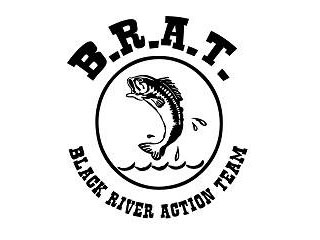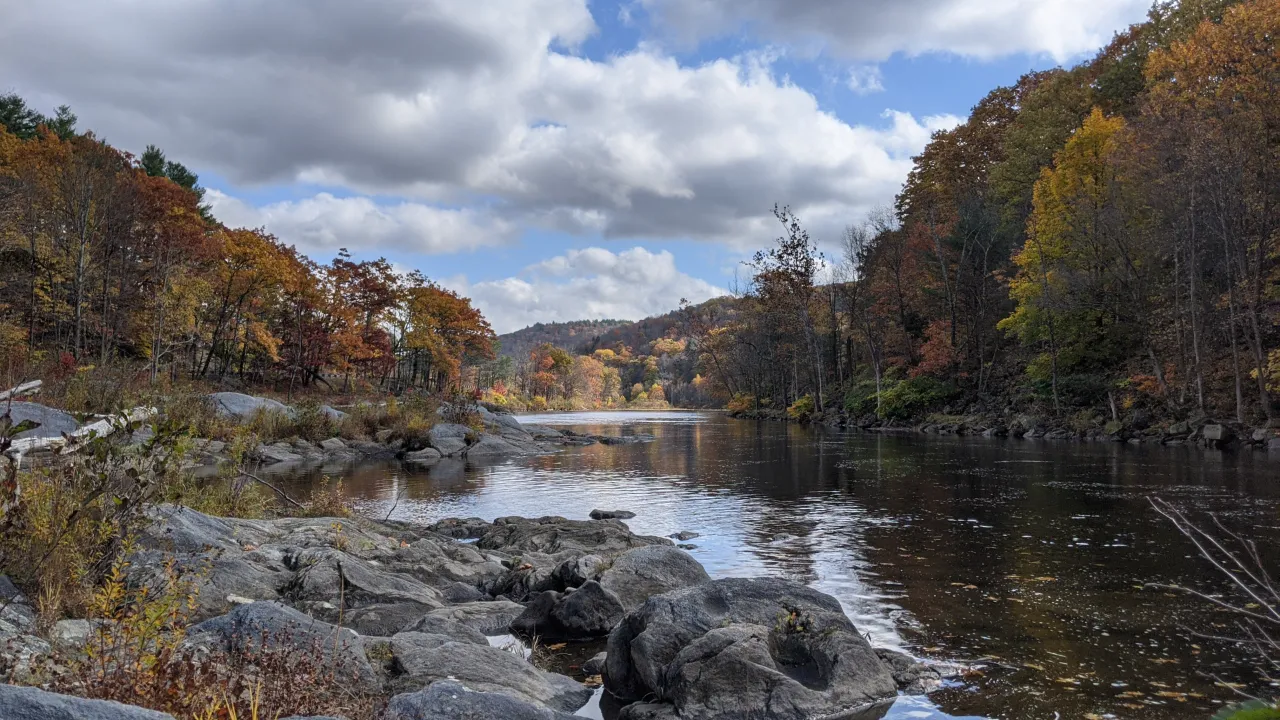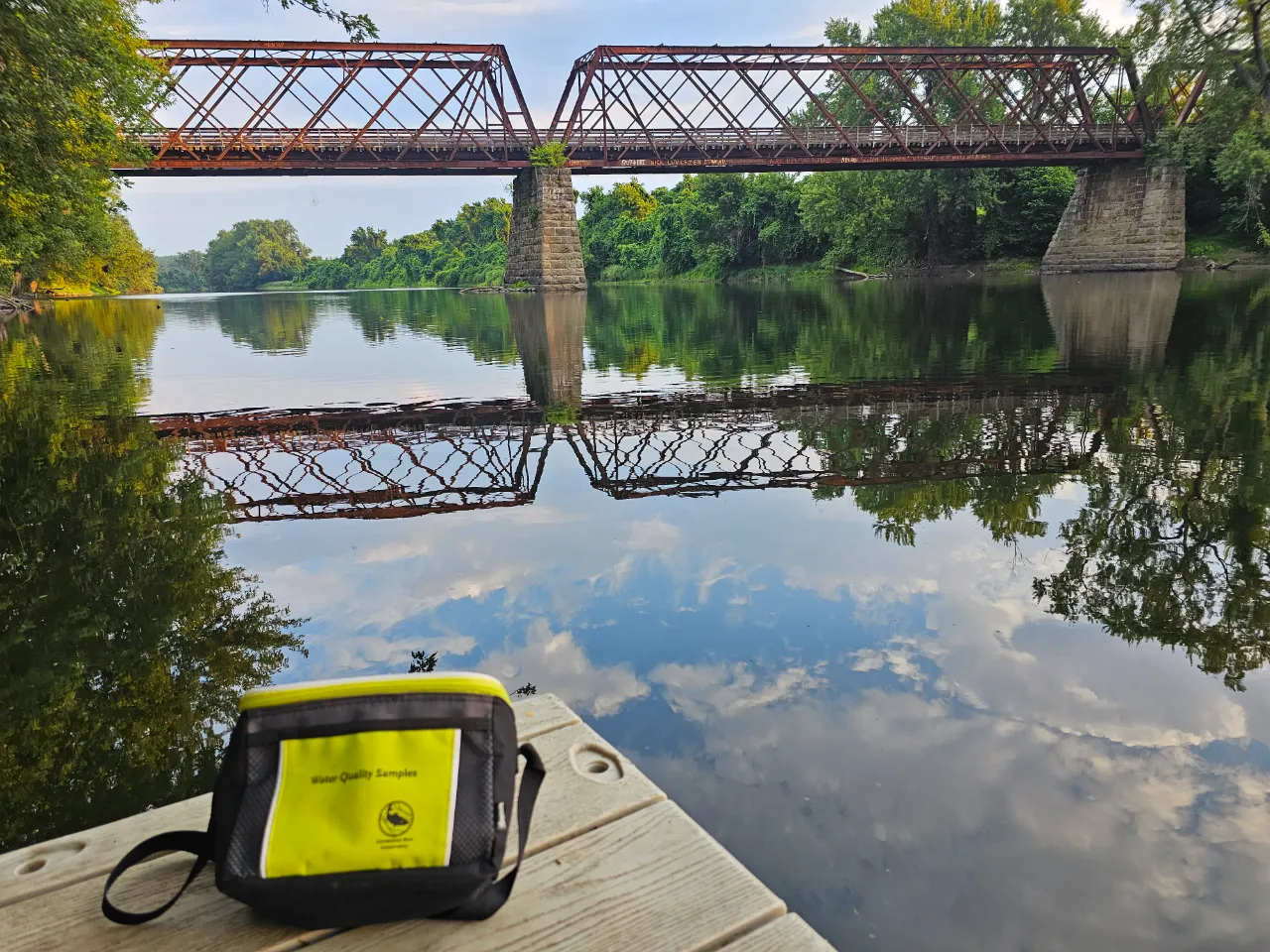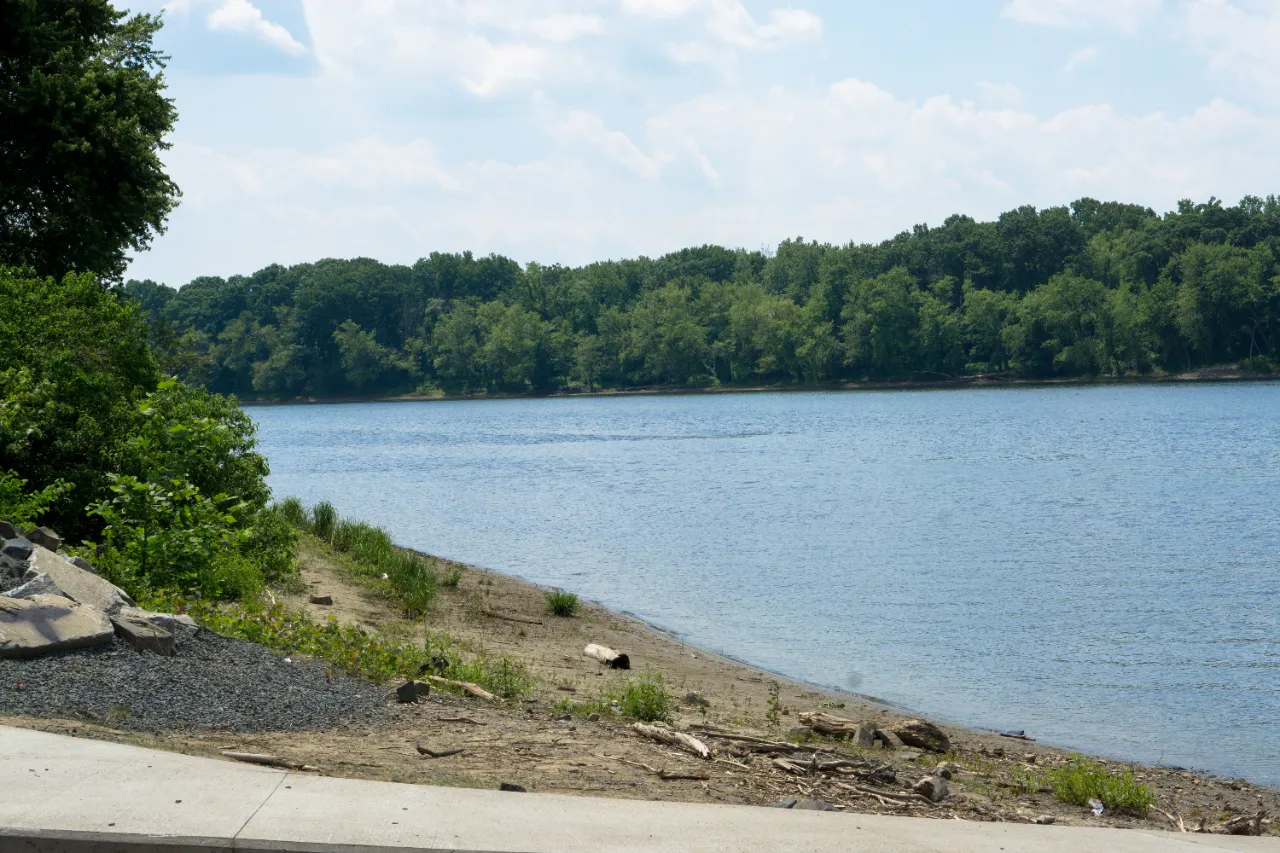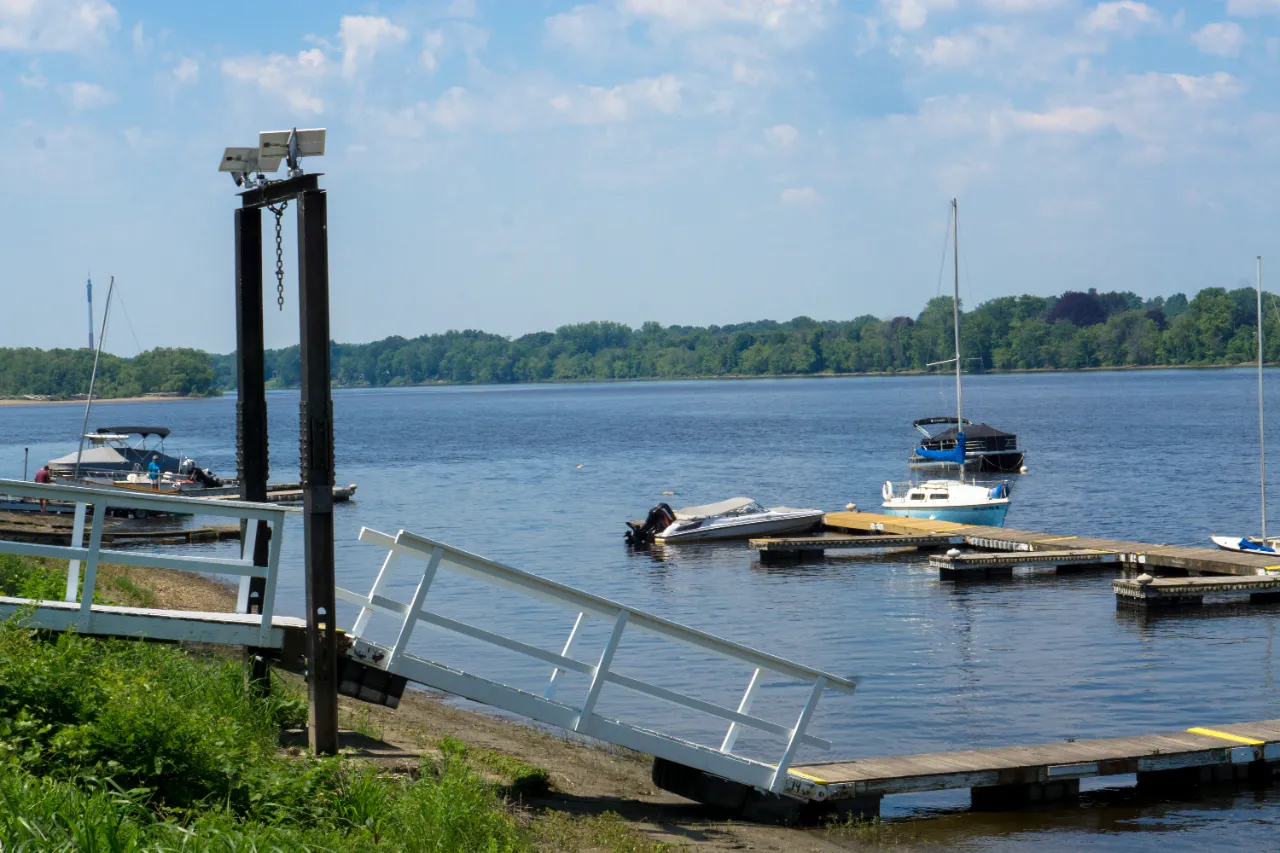Likely condition
0% chance*
Clean for boating only
During dry weather this site was clean for boating only 0 times out of 0 measurements (0%).
0% chance*
Clean for swimming
During dry weather this site was clean for swimming and boating 0 times out of 0 measurements (0%).
0% chance*
Not clean for either
During dry weather this site was not clean for swimming or boating 0 times out of 0 measurements (0%).
* Not real-time data — even consistent past results come with a margin of uncertainty.
No data
No samples have been taken at this monitoring site during dry weather.
65% chance*
Clean for boating only
During wet weather this site was clean for boating only 33 times out of 51 measurements (65%).
29% chance*
Clean for swimming
During wet weather this site was clean for swimming and boating 14 times out of 51 measurements (29%).
6% chance*
Not clean for either
During wet weather this site was not clean for swimming or boating 4 times out of 51 measurements (6%).
* Not real-time data — even consistent past results come with a margin of uncertainty.
No data
No samples have been taken at this monitoring site during wet weather.
All water tests
Download as CSV
Date
Weather
Wet/Dry weather shows if there was rain in the 48 hours before the sample was taken.
Status
CFU/100ml
The number of bacterial colonies in 100 ml of water.
Clean for swimming and boating <235 cfu/100 ml
Clean for boating only 235 - 575 cfu/100 ml
Not clean for either >575 cfu/100 ml
This site is monitored by
Water discharge and bacteria level
Discharge, cubic feet per second
E.coli, cfu/100 ml
Discharge is the amount of water moving through a river channel, typically measured in cubic feet or meters per second. It’s closely tied to water level—more rain or snowmelt leads to higher discharge and rising river levels. These increases can stir up sediments and wash bacteria from the land into the water, often resulting in higher bacteria concentrations, especially after heavy rains.




